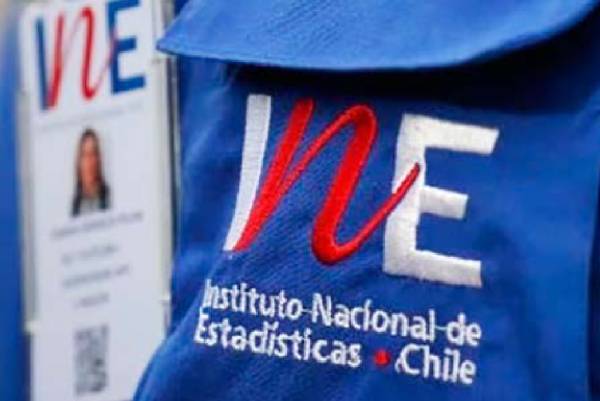Just over a month before the start of the 2024 Population and Housing Census in the country and the Ñuble Region, the National Institute of Statistics (INE) is putting together the final preparations to successfully carry out the national survey in the 21 communes of the region.
For this occasion, the census questionnaire will be developed during the months of March and June 2024 and will have a total of 50 questions divided into four central modules (housing data, household data, registry of people in the household, and data on the people), which will address topics such as the demographic characterization of the population, levels of education, fertility and employment; and new questions regarding topics such as labor mobility (means of transportation to the place of employment), African descent, use of native languages, gender and disability, religion, among others.
The INE, together with the 21 municipalities of Ñuble, established collaboration agreements through communal census commissions that were referred to each of the working groups on transportation, communications, logistics, security and recruitment. Through these agreements, the municipalities are committed to supporting the census process in various areas of work.
On the other hand, the next Census will involve the hiring of operational personnel of more than 30,000 people throughout the country; of which around 1,200 census takers will be responsible for touring the homes of the 21 communes of the Ñuble Region, wearing the institutional clothing of the 2024 Census and carrying a credential with a QR code in a visible place with which the population can verify his identity.
Along these lines, at the time of being censused, the census taker will use a mobile capture device (smartphone) for all his or her face-to-face interviews; and the application of said survey will last approximately 20 minutes for an average household of three people. In that case, the Census will only be applied to habitual residences, that is, the place where a person has lived for most of the last 12 months.
Under this point, from the INE Ñuble they reported how fundamental the communication issue represents so that citizens are well informed about the next census process. “The importance of a population and housing census has been disseminated, which is the largest statistical operation in the country, which answers the central questions ‘how many are we?’, ‘where and how do we live?’. Census information is a fundamental input to update the needs of the population, plan actions and make decisions for the benefit of citizens, both in the public and private sectors.”
“We have also made the call to each inhabitant of the country to ‘open the door to the Census’, and the communication campaign for the 2024 Census that started in January has focused on this call. Furthermore, since the Pre-census, the municipalities have been strategic allies that also collaborate with us in the delivery of information through their different channels, whether on social networks, websites, among other platforms,” added the state agency.
The National Institute of Statistics asserted that all the information that people provide to the agency’s census takers will be confidential. “It must be considered that all the information that people provide to census takers is protected by Statistical Secrecy, in accordance with Law 17,374, which governs the National Institute of Statistics. The above means that the INE cannot deliver information to any organization, public or private, referring to a specific person.”
Text: Luciano Gallardo

